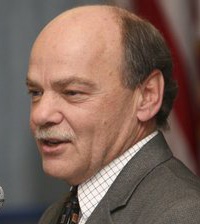Published Tuesday, June 7, 2011 | 1:55 a.m.
Updated Tuesday, June 7, 2011 | 2:32 p.m.
Sun coverage
Sun archives
- School District awaits word on impact of final budget (6-3-11)
- Republicans get their way, mostly, in final budget (6-2-11)
- Lawmakers reach agreement on state budget (6-1-11)
- Senate passes education reforms in sign that budget deal is near (5-31-11)
- Superintendent announces plan to boost student achievement (5-26-2011)
- School Board OKs budget with at least 1,834 layoffs (5-18-2011)
Nevada ranks 45th in the nation in K-12 education spending per pupil, according to an analysis released last month by the U.S. Census Bureau.
Nevada school districts spent an average of $8,422 per student during the 2008-09 school year, according to the 2009 Annual Survey of Local Government Finances — School Systems. The U.S. average was $10,499 per pupil.
The financial survey collected public and charter school data from state education departments, including Washington, D.C. The data include education revenue from federal, state and local sources; instructional operation and spending figures; and capital spending numbers from the fiscal year 2009, the most recent data available.
New York led the nation in education spending at $18,126 per student, according to the census report. Washington, D.C., $16,408; New Jersey, $16,271; Arkansas, $15,552; and Vermont, $15,175, rounded out the top five.
Nevada ranked seventh from the bottom. Utah spent the least at $6,356 per student. Idaho, $7,092; Arizona, $7,813; Oklahoma, $7,855; and Tennessee, $7,897, rounded out the bottom five states.
Nevada’s general education expenditure in 2009 was $4.10 billion, up slightly from $4.07 billion in 2008. The majority of the state education expenditures is for the Clark County School District, which spent $3.3 billion in 2009. The bulk of the state and district spending went to salary and wages.
Keith Rheault, superintendent of public instruction, said the low spending ranking did not surprise him. Historically, Nevada has ranked near the bottom in both education spending and academic achievement, he said.
“You get what you pay for,” Rheault said. “Our federal funding was always lower than what we should have been getting even though we knew we had a lot more students than the 2000 census. I welcome the census because now we can account for the new students we have in the state.”
The Nevada Policy Research Institute, a conservative think tank, has also analyzed the state’s education spending and has come up with similar figures, communications director Victor Joecks said. However, more education spending doesn’t necessarily mean better academic performance, he said.
“The emphasis on funding distracts from what the goal should be: student achievement,” Joecks said. “There’s very little correlation between spending and student achievement.”
The institute's analysis found that per-pupil Spending in Nevada, adjusted for inflation, has nearly tripled in the past 50 years with no corresponding gain in student achievement, Joecks said.
“When you hear talk about having 30 to 40 kids in a classroom, where is that money going?” Joecks said. “Each of those students represents a significant investment by Nevada taxpayers and we aren’t getting our return on investment.”
According to the census report, Nevada ranks 32nd in the nation for education revenue from federal sources. However, Rheault notes that federal funding accounts for the smallest portion of the state’s education revenue.
In 2009, about $425 million — less than 10 percent of the state’s education revenue — came from federal funds, according to the report. The bulk of the revenue came from the state sources $2.2 billion, 51 percent and local sources $1.7 billion, 39 percent.
The census survey was conducted from January 2010 to March 2010, and the data were processed from March 2010to April 2011.
The Nevada Legislature approved Assembly Bill 579 last weekend authorizing $2.1 billion in state education funding for the next biennium. Currently, annual state funding for education totals $5,192 per student. That number would increase to $5,263 by the fall and to $5,374 by 2012.
It’s higher than Gov. Brian Sandoval’s proposed budget, which was about $4,900 per student, Rheault said.
“It was welcomed to get that extra funding in the final bill,” he said.


Join the Discussion:
Check this out for a full explanation of our conversion to the LiveFyre commenting system and instructions on how to sign up for an account.
Full comments policy